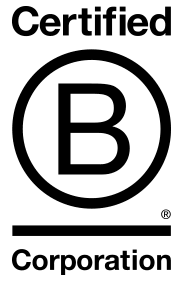Paul Hargreaves: Save the Planet!
I make no apology for coming back to environmental issues again this week. Plastic is the hottest topic in the food and drink sector at present and is sure to dominate conversations at the Food & Drink Expo and Farm Shop & Deli Show next month. It is certainly a hot topic at Cotswold Fayre and the subject is now in conversations we are having with suppliers on their future NPD (new product development). So far only two suppliers have suggested that they are working on a non-plastic solution for a product currently in plastic ‘clothes’ and I expect to see more over the next few months. However, I confess, I am disappointed that the speciality food sector is not leading the way here. We often lead the way in taste and packaging innovation, surely, we should be pliable and flexible enough to be leading the way in environmental issues – and sadly we are not.
Whilst I am pleased that the “plastic” issue is very much at the forefront of everyone’s mind, I hope the debate becomes wider. I have not heard any criticism from central government of councils who still do not recycle plastic. Apparently, there are many that still do not offer this. And whilst the emphasis should rightly be on those manufacturers to change their ways, there are some items that will, of necessity, remain plastic for years to come. Local councils should be forced to recycle this. I have several very warm fleeces made entirely from recycled plastic and the beauty is that they can almost be worn again straight from the washing machine, as they do not hold any water! And of course, there are many other issues away from plastic packaging that need to be discussed seriously.
There is a strange apathy in the sector from many in the speciality food sector around environmental issues, and many producers and retailers let money only make decisions they make rather than money plus wider issues. At Cotswold Fayre, we run our business on the triple bottom line model of Profit, People and Planet all having equal importance within our business plan. Yes, profit is still there, as unless you are running a profitable business you cannot change and implement new initiatives anyway but caring for people (your own and those in supply chain) and the planet are equally important for us. Both are areas that we can challenge ourselves to do a lot better.
I remain astonish by some small producers that will drive over 100 miles just to deliver an order to a customer or retailers insisting on ordering direct for most of their stock, perhaps to add 2% to their margin. There is no consideration for the environment in decisions like this, when there are solutions in place that would significantly reduce the carbon impact. How many of us are paying a little more for our electricity bills to have entirely sustainably produced electricity? How many of us are looking for electric delivery vehicles, which are already on the market and ideal for many local deliveries. How many of us are looking at electric cars for their sales team? How many of us are offsetting the carbon used within our businesses? We have just offset all our business travel for the past financial year (buying and selling – air and cars) and the cost to do this is not as much as you might think. This can be a good place to start.
This week I was talking to a Chamber of Commerce in the Midlands and started to talk about some of these environmental issues. On the screen was a picture of an Asian community flooded out of their homes by floods probably caused by climate change. Western businesses spent much of the last two centuries destroying the planet and causing damage like this. Slowly we are coming to our senses. Let the speciality food sector be a shining light to other businesses, food or other, in ‘greening up’. We have a long way to go.











